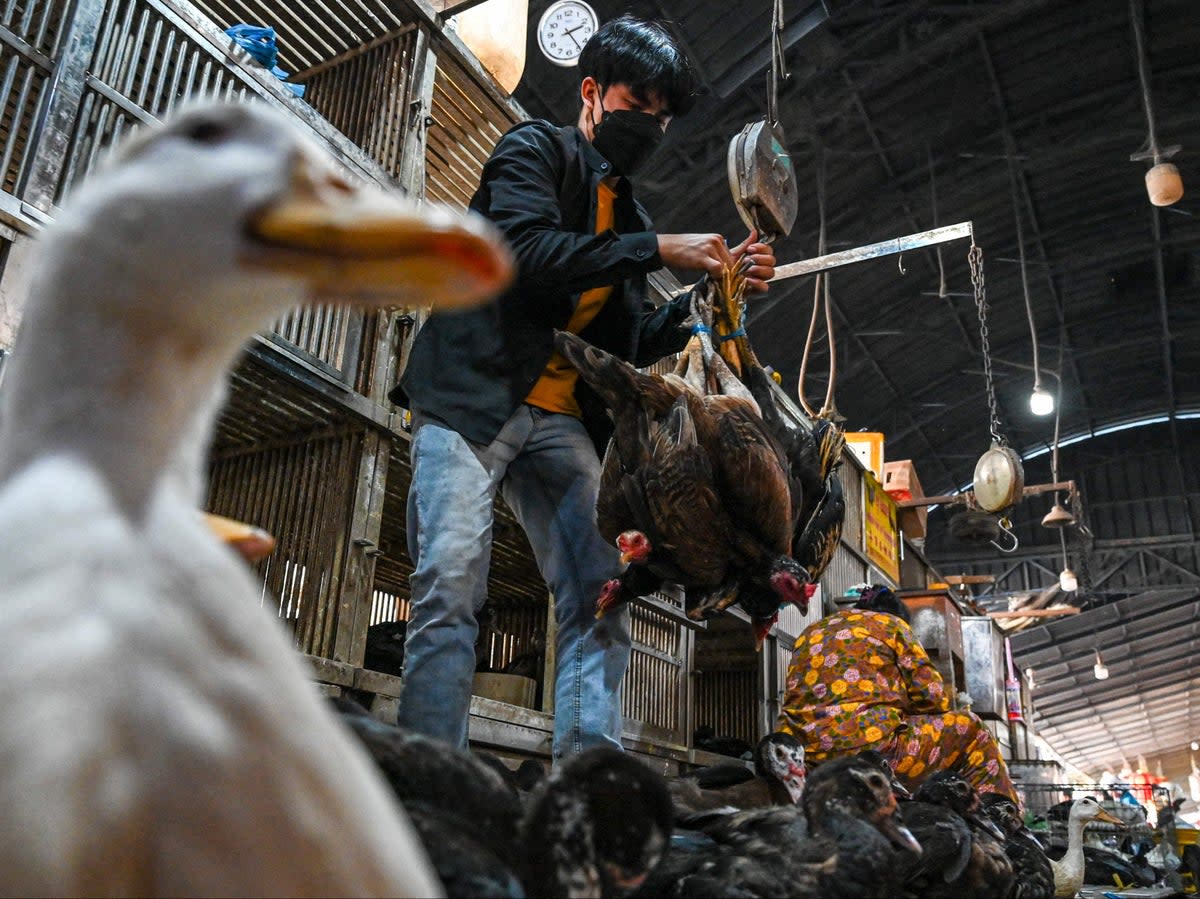Girl, 11, dies in Cambodia after catching bird flu, government says

An 11-year-old girl in Cambodia died after being infected by bird flu, the government said.
It was the South Asian country's first known case of H5N1 virus infection since 2014, health minister Mam Bunheng said on Thursday.
The girl from the rural Prey Veng province fell ill and was sent to a hospital in the capital Phnom Penh on 16 February. She was diagnosed with bird flu after suffering a fever of up to 102C with cough and throat pain.
She died shortly after on Wednesday, the health ministry said in a statement.
The girl's father also tested positive and 11 others have been tested for the flu.
The Cambodian health authorities collected samples of dead birds from near the girl's village and urged people not to handle dead or sick animals and birds.
Locals have been advised to contact a hotline if anyone suspected they had been infected with the virus.
The health minister warned that bird flu poses an especially high risk to children who may be feeding or collecting eggs from domesticated poultry.
Cambodia has had 56 human cases of H5N1 from 2003 through 2014, with 37 of them being fatal.
Bird flu, also known as avian influenza, normally spreads in poultry and wasn’t deemed a threat to people until a 1997 outbreak among visitors to live poultry markets in Hong Kong.
Most cases across the globe are a result of direct contact with infected poultry, but concerns have arisen recently about infections in a variety of mammals and the possibility the virus could evolve.
The bird flu has ravaged farms around the world since early last year, leading to the deaths of more than 200 million birds due to the infection or mass culls, the World Organisation told Reuters.
Nearly 870 human infections and 457 deaths have been reported to the World Health Organisation (WHO) in 21 countries.
Tedros Adhanom Ghebreyesus, the director-general of WHO, earlier this month warned against the rapid spread of avian influenza in wild birds and poultry for 25 years.
Mr Tedros said the WHO still assesses the risk from bird flu to humans as low.
“But we cannot assume that will remain the case, and we must prepare for any change in the status quo,” he said.

 Yahoo News
Yahoo News 
